Time is limited
We constantly make decisions with regards to how we spend our time, and a large chunk of our time is spent learning. In order to improve ourselves as time passes, we invest large amounts of time to learn a skill, to read a book, or to gain some new knowledge. So how do we know what to learn?
If you imagine each person as a game character with their own stats, it would look something like this:
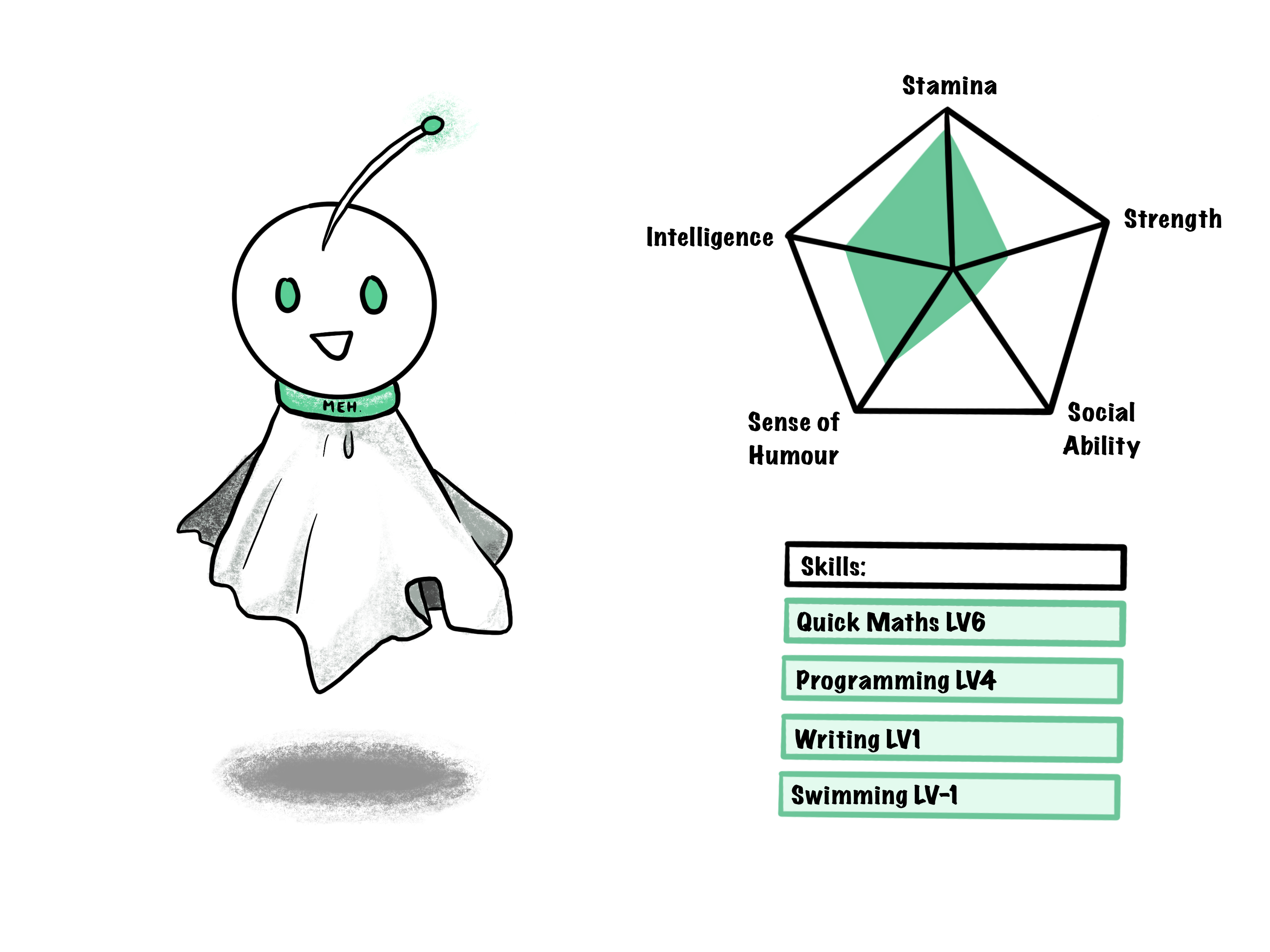
Everyone starts out with a set of numbers, and as they spend their time to learn, their stats increase, and they gain new skills and knowledge. However, as your expertise in a specific area increases, it becomes harder and harder to progress. As your level increases, levelling up becomes a feat that is progressively harder to achieve.
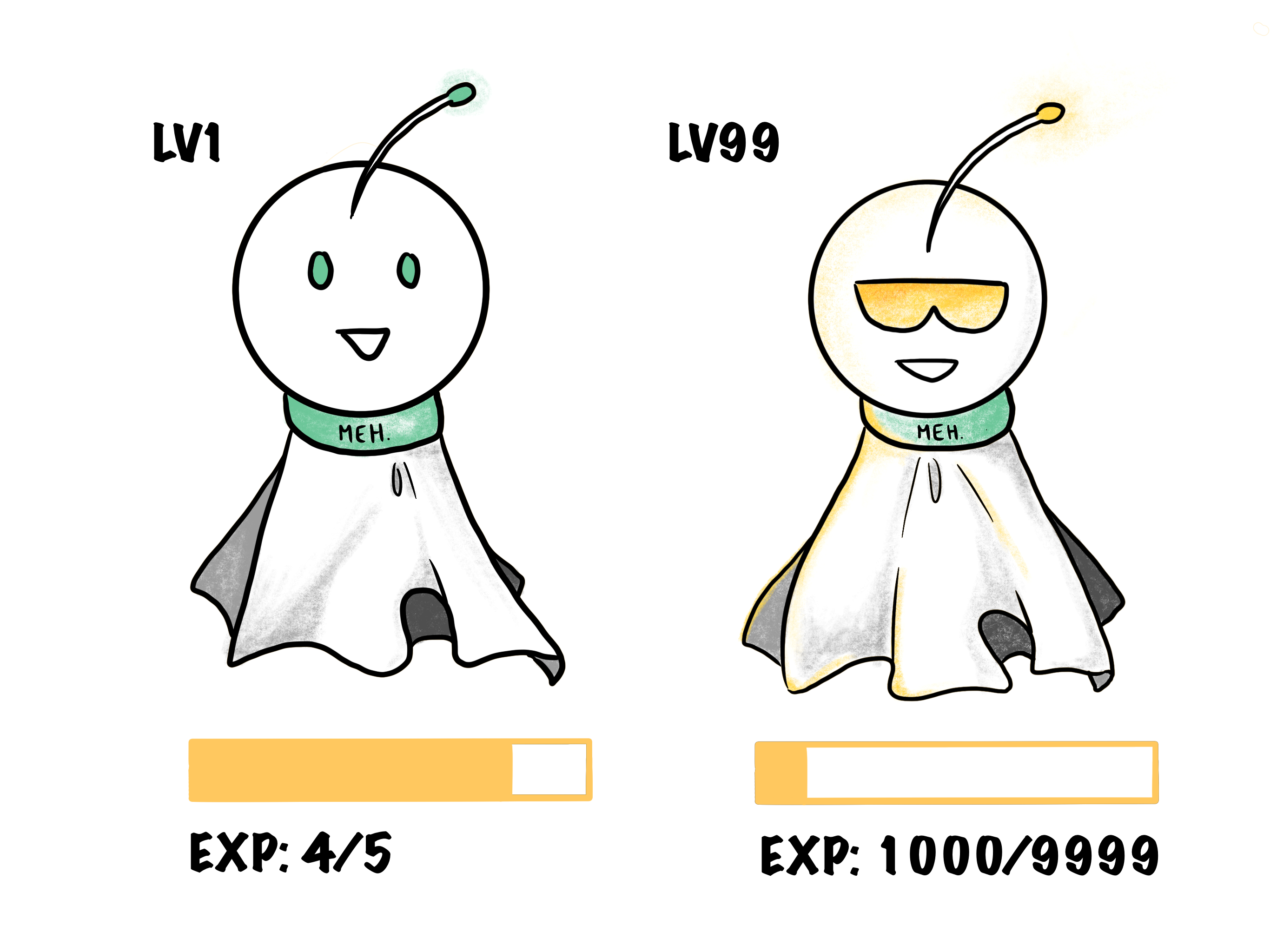
Imagine a graph of expertise against interests. The more time you spend on a single interest, the higher your expertise in that particular topic. Assuming everyone has the same amount of time and puts in the same amount of effort, the area of the diagram would be the same, however the shape of the diagram could vary depending on how you choose to allocate the limited time you have.
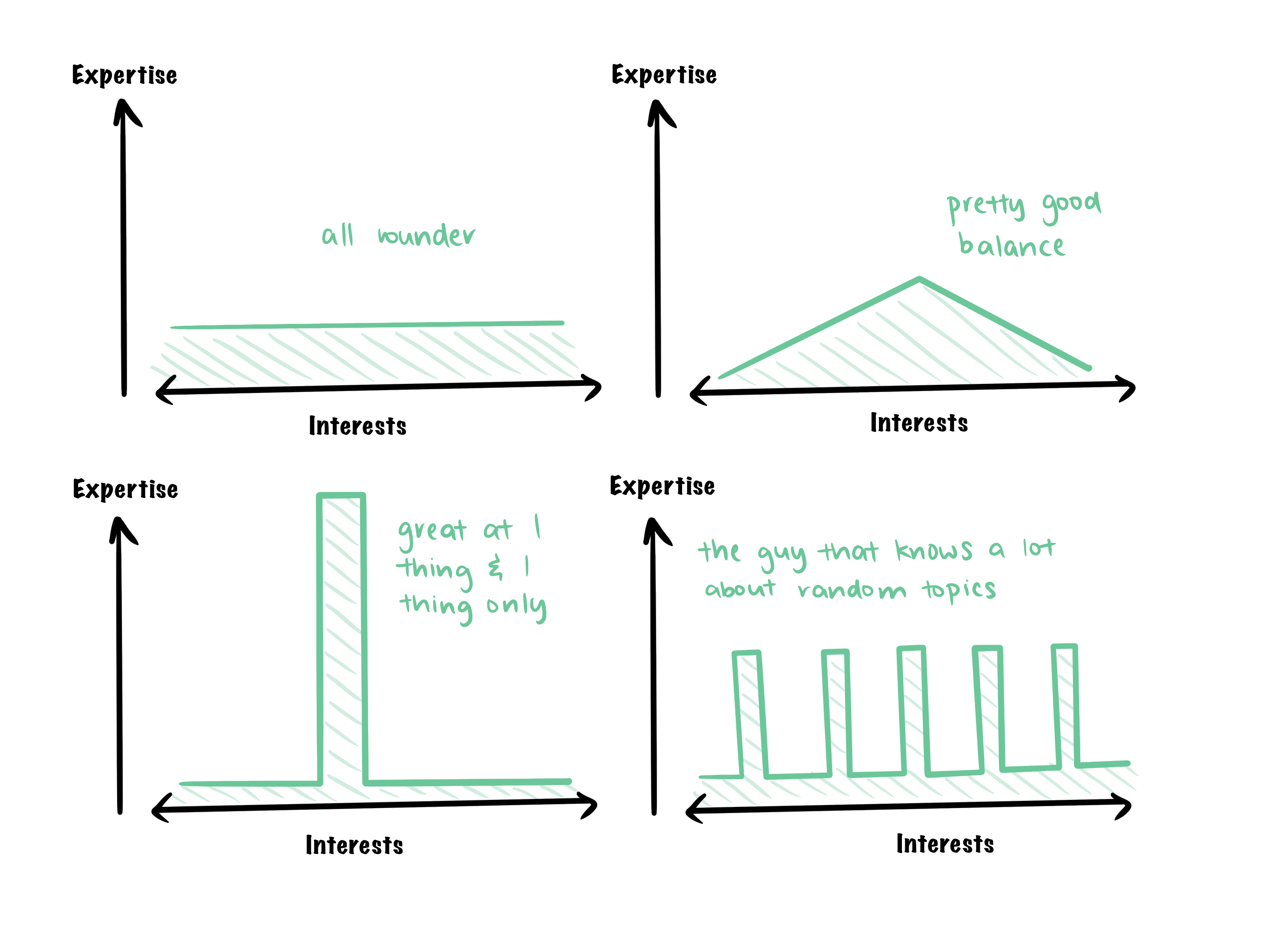
So here comes the problem of the decade: is it more worthwhile to spend huge amounts of time to level up a single skill or a single area of expertise, or is it better to split that time up to reach beginner or intermediate level of knowledge in multiple areas?
Arguments for Breadth over Depth
Life is a Journey
In the end, we only get to experience life once. It makes perfect sense for us to use our limited time to see what the world has to offer, and that includes moving cities every few years, changing careers every so often, and travelling the world. To those of us who want to live life in the present, it seems like the logical decision to vary our experiences as much as possible.
Interdisciplinary thinking
Often times when you learn about a topic, you build both knowledge and mindset that would be less accessible to the general public. This puts you in a position to apply that knowledge and mindset to a problem in another area of expertise, making it comparatively easier to generate original ideas and come up with creative solutions.
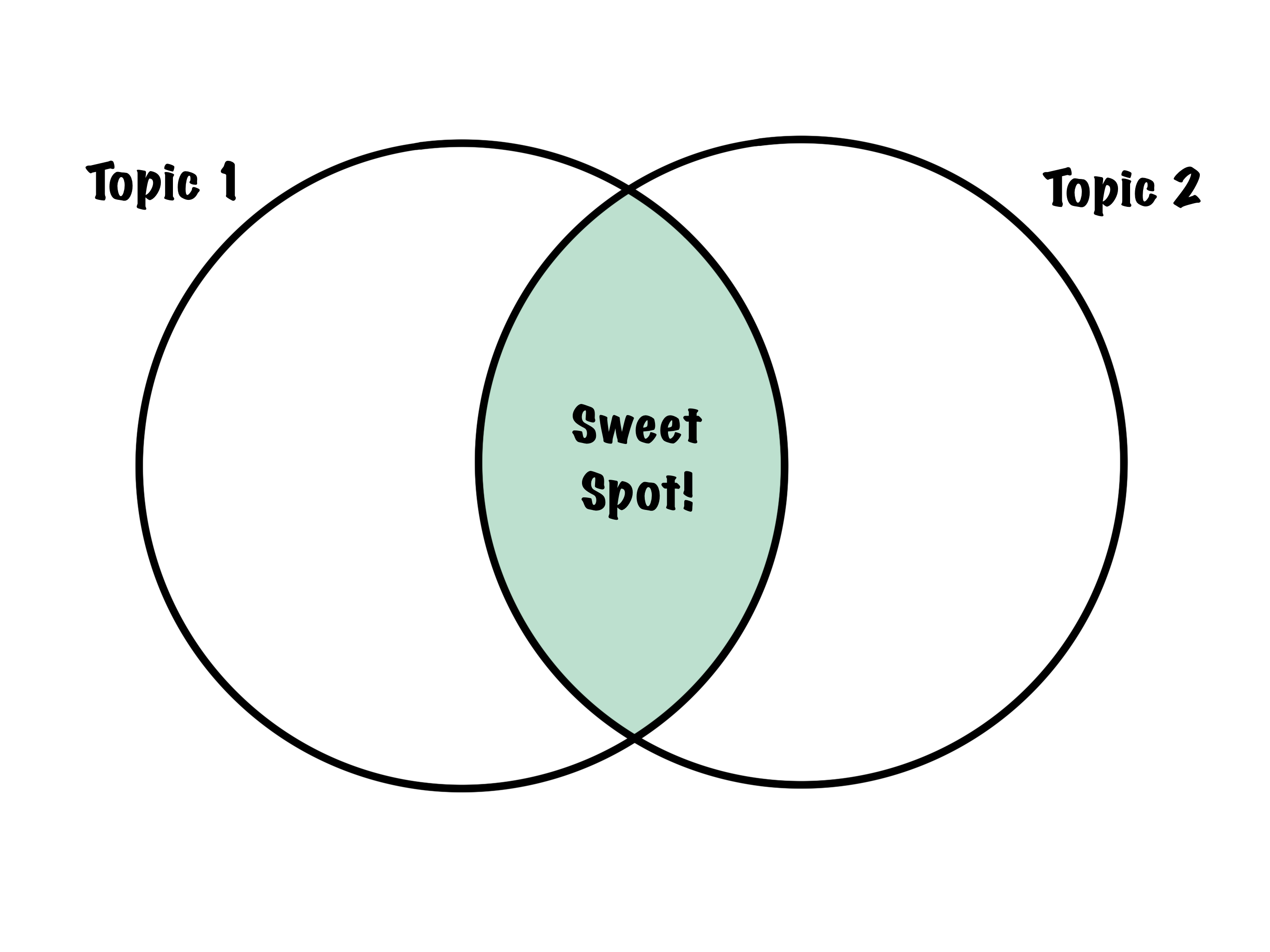
This interdisciplinary knowledge also allows you to be more influential among your specific niche. For example, there are many writers in the world, and there are also many people who know how to play the guitar, but if you're a guitarist who can also write, then it makes you a rare commodity!
That's also the reason why some people say that it's better to be in the top 20% in two fields than be in the top 5% in one. If you do the math, 20% x 20% = 4% < 5%. Meaning that if you are in the top 20% in two fields, you would be in the top 4% of the people that are experts in both fields. Arguably, it would be easier to reach top 20% in two fields than to reach top 5% in one.
The effect is more pronounced as the two fields become increasingly different. For example, there are many people who are experts in both physics and math, but physics and history would be a much rarer combination.
Arguments for Depth over Breadth
Reaching the Top
Focusing all your efforts in a single area allows you to reach the very top in whichever area you choose to pursue, and there are always benefits to being the best in your area of expertise. If you're the best plumber, the best engineer, the best doctor, the number of people that find you for your service would be orders of magnitudes higher than that of an average person. Hard work pays off, and rewards increase exponentially as your expertise in a specific area increases.
The Law of Diminishing Returns
As more time is being spent pursuing breadth over depth, the rewards for doing so decreases. Each new venture, each new skill now brings less and less value to your overall improvement.
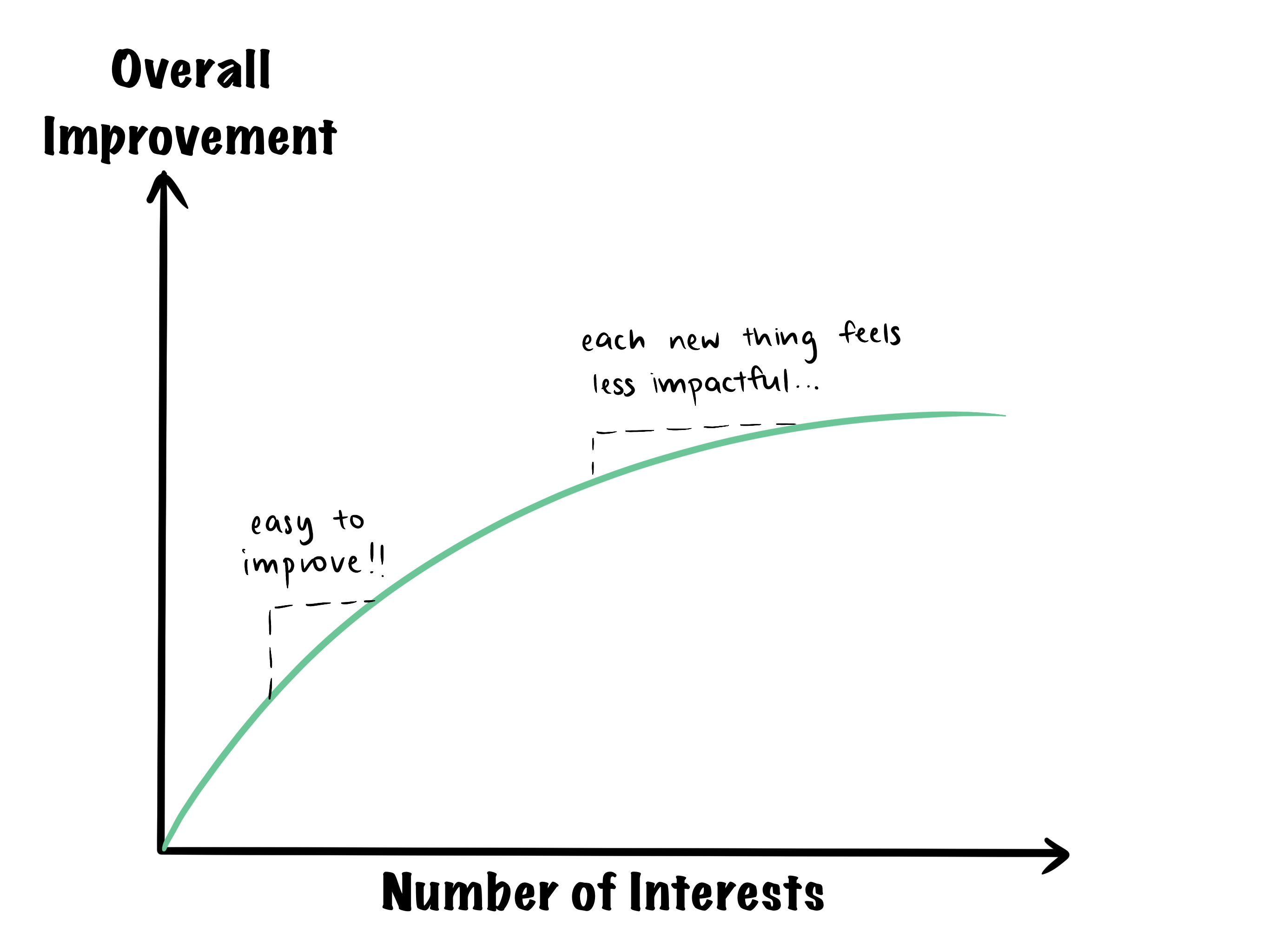
In contrast, there could be rewards for investing a lot of time to become a master at something. There are interesting details that you would never have known unless you reached a high level, and new levels of understanding would become available to you. In a way, you could unlock more of what life has to offer as you become more of an expert in one specific area.
Is there a solution to this problem?
Like all things, the most important thing is to strike a balance of breadth and depth. Spend some of your time expanding your interests, and spend the rest polishing your skill in your area of expertise. This way, you get a T-shaped skillset where you have surface level understanding in a wide variety of subjects, but are very knowledgeable in one or two. This way, you have the best of both worlds: getting to a reasonable level of depth while maintaining some form of breadth.
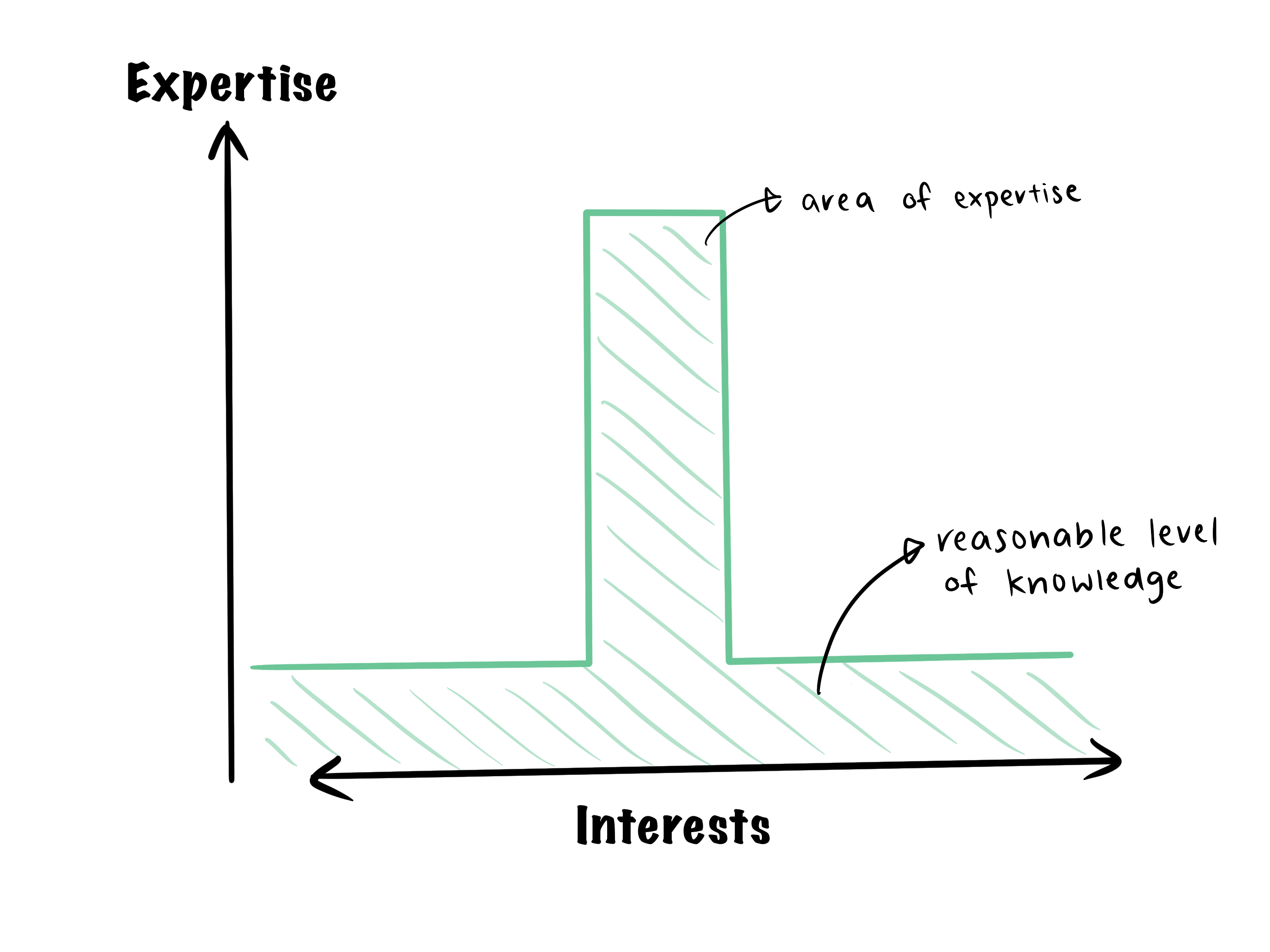
What do you guys think? What would be the best way to allocate your time?
Comments
Write a CommentNo comments yet. Be the first!